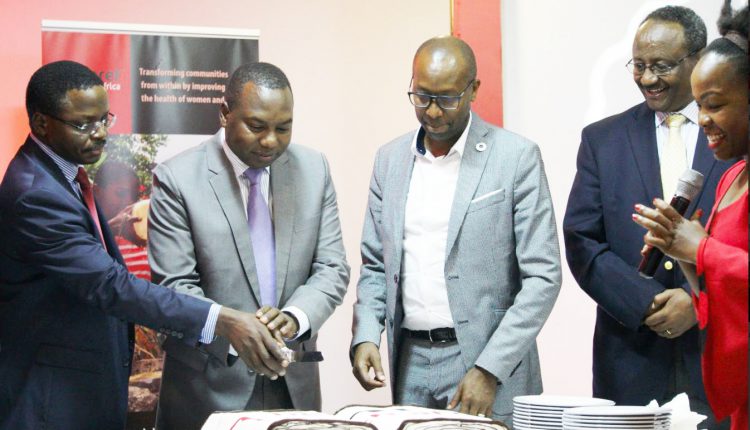By Catherine Muema
In summary
- The NGO will work with community health workers and also develop innovative solutions to increase access to and use of health services
- NHIF currently covers 6.2 million Kenyans (15% of the population), an increase from 3.8million in 2013
- The NGO to support development of Community Based Health Insurance Scheme at Amref areas of operation
- Already, Amref has unveiled a Ksh 26 billion plan to support the improvement of primary health care for 25 million people in the country over the next five years
- The ambitious plan focuses on improving access to basic health care services by underserved communities, women, children and the youth.
Amref Health Africa in Kenya has announced to plans to increase the skills of 120,000 health workers to support enrolment of at least 20 million Kenyans onto the NHIF scheme.
The NGO will work with community health workers and also develop innovative solutions to increase access to and use of health services.
The NHIF currently covers 6.2 million Kenyans (15% of the population), an increase from 3.8million in 2013.
Amref Health Africa in Kenya’s Country Director, Dr Meshack Ndirangu said the NGO will support development of Community Based Health Insurance Scheme at Amref areas of operation.
“We will promote use of Community Based Health Insurance Schemes (CBHIS) such as M-TIBA which enables people to save, send, receive and pay money for medical treatment through a mobile wallet on their phones,” said Ndirangu.
Ndirangu who was speaking during the launch of Amref Health Africa in Kenya, Strategic Plan 2018- 2022, said uptake of NHIF remains a challenge due to unaffordability and lack of understanding of the benefits of a health insurance scheme.
He said Amref plans to work with local Civil Society Organisation (CSOs) within its project areas through a commission based incentive system to recruit community members to NHIF Amref Health Africa in Kenya.
“Amref will aim to influence the review of the NHIF package to accommodate a lower tier for those who cannot afford the minimum payment,” said Ndirangu.
The Cabinet Secretary for Health, Sicily Kariuki said her Ministry was in the process of configuring the National Hospital Insurance Fund to accommodate community health workers to improve NHIF coverage.
“My Ministry intends to work with partners like Amref Health Africa to extend NHIF coverage through use of extensive community health workers network,” said Kariuki.
She said her Ministry is working towards achieving 100 percent Universal Health coverage by 2022 from the current 36 percent. Kariuki said the national health budget is expected to increase from Kshs 61 billion in 2018 to Ksh 73 billion by 2021.
Amref has unveiled a Ksh 26 billion plan to support the improvement of primary health care for 25 million people in the country over the next five years.
The ambitious plan focuses on improving access to basic health care services by underserved communities, women, children and the youth.
Ndirangu said the organisation will alter its business model in the face of increasing competition from non-traditional development players, shifting donor-funding priorities and unpredictable changes in the donor policy environment driven by key issues like migration and security.
“In our new strategy, we have put emphasis on domestic resource mobilisation and on entrepreneurial and sustainability approaches while taking bold steps to increase internal efficiency and effectiveness so that we can fulfil our core mandate of improving health in communities,” said Dr Ndirangu.
He added that the new Strategic Plan reflects the changing national and global context in which Amref Health Africa is operating.
“This plan contributes to the Government of Kenya’s Vision2030 to transform the country into an industrialised, middle-income nation providing a high quality of life to all its citizens. It spells out Amref Health Africa’s leadership role in health development, in particular supporting the Government’s agenda to strengthen devolved governance and institutions for improved health service delivery by the county governments,” he said.
Amref has operations and diverse health programmes covering all 47 counties in Kenya with a current annual average budget of Kshs 4 billion (US$ 40 million). Dr Ndirangu said the NGO would seek a minimum annual growth of 10 per cent by diversifying its income base.



